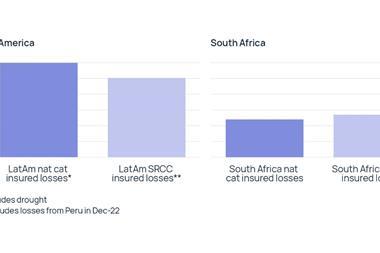No-one appeared to see this coming. In truth, they should have done

The people of Britain have chosen to leave the European Union. The margin of victory might only have been narrow but it is a majority nonetheless and one which needs to be respected whether or not we as individuals or as businesses support that choice. There can be no going back and the democratic will of the public cannot be ignored, no matter the consequences.
Negotiating the UK’s departure from the Brussels machine, a process that has become known in recent months as Brexit, will not happen overnight. It will be a protracted and complicated procedure – the messiest of divorces wrapped around a regulatory Gordian knot that that will take years to untie and one which is likely to consume the legal industry for some considerable time.
The atmosphere in the aftermath of the referendum is sombre as people absorb the magnitude of what has just taken place.
Even those who voted “Leave” more in hope than expectation appear bewildered by an outcome which was foreseen neither by opinion polls nor indeed bookmakers who are normally more in tune with such events.
In the final hours of voting, City traders sent shares and the value of sterling soaring as they anticipated a widely forecast win for the “Remain” camp. No doubt some will have cashed in handsomely on what was to follow but how wrong the majority of so-called “experts” were.
As trading started on Friday morning with the result decided, the FTSE100 suffered one of its largest ever drops and other major international bourses went into freefall. The value of sterling plunged to a 30-year low.
Within 15 minutes of the markets opening, Prime Minister David Cameron had announced his resignation ensuring that whatever else happened, Friday 24 June 2016 would be remembered as one of tumultuous and historic proportions. This was the day the UK led itself down a lone path of political, economic and societal uncertainty.
Yet no-one appeared to see this coming. In truth, they should have done.
It is more than three years since David Cameron announced his intention to hold a referendum on the UK’s future in the EU. At the time it seemed like folly because it risked undermining the country’s relatively impressive recovery from the economic downturn with uncertainty over the outcome a deterrent to investment – but did not appear to be a significant risk in itself. The British public might be upset with the EU but they would never vote to leave, surely?
Cameron’s decision to hold a referendum served two purposes: to silence once and for all the Eurosceptic wing of the Conservative Party that has been a constant irritant to so many of his predecessors, and to boost his chances of another term in power as the vote could only be held if Cameron won the 2015 UK election.
The countdown to the referendum should have begun from the point Cameron revealed his intentions at the World Economic Forum in January 2013 but back then few people started looking at the likely implications with any degree of seriousness or detail. Today there will be plenty of people, particularly among risk professionals and the businesses they represent, asking themselves why not?
Back in 2013, Cameron is likely to have believed that a result in favour of staying in the EU was pretty much a foregone conclusion. He may well have felt the same way about the Scottish referendum at one point which he then came perilously close to losing in 2014.
That should have served as a warning both to the public and the rest of the UK – but one which was not heeded by the UK government or indeed the world of commerce.
StrategicRISK has been examining risks around the possibility of Brexit for some time and it is clear that many companies have been woefully unprepared either through wilful ignorance or some notion that it “will never happen”. Even after Cameron announced the referendum date in February this year, still some companies wanted to adopt a “wait and see” policy. Others did not want to be seen discussing the risks publicly in case they were perceived as being “political” in some way. Of course they were prepared for the consequences of a one in a thousand year solar storm but not the outcome of a 50:50 referendum.
Yet the risks were evident and the seeds for what has now followed were already sown. In 2013, the Syrian war had not yet impacted on Europe but that would soon change and help plunge Europe into its most turbulent period since the Second World War.
Migration has often been a sensitive and polarising issue in the UK. While the country has a long and creditable record in providing safety and security for refugees and others in need, its collective tolerance appears to be waning.
And the UK is not alone. The EU, an entity meant to foster harmony as well as prosperity, has been shaken recently with some of its most fundamental pillars, such as freedom of movement, at the very centre of the argument.
The massive and unprecedented shift of people into Europe from war-torn Syria and across North Africa as a consequence of the so-called Arab Spring has brought this crisis to a head.
Even some of Europe’s most traditionally liberal countries, such as Sweden, are in despair.
Add to this, the significantly increased terrorist activity we have seen since the start of 2015, and there are genuine concerns about the security of Europe.
Rightly or wrongly this formed the central tenet of the UK’s referendum narrative and is one of the main reasons why the Leave campaign succeeded.
Vote Leave triumphed not because it offered more compelling arguments than Remain, instead it focused on fear, particularly around immigration. It told voters they could take back control of their country and their borders. Conspicuous by its absence was any real mention of why migration was necessary, even if they couldn’t bring themselves to say it was good. Voters will soon notice when the Polish plumbers disappear.
The Remain campaign was unable to counter this line with a viable response. Both sides told lies throughout what was a nasty and dirty campaign that was poorly acquainted with truth and fact. In the end, Leave’s lies were more convincing.
Both the Remain and the Leave camps should be ashamed of themselves for their thoroughly discreditable, propagandist campaigns which inhibited more than enhanced the democratic process. If ever there was a time when facts were needed to help people make such an important decision this was it – yet consistently voters complained of not knowing how to decide because they needed more information.
Ultimately Cameron is responsible for the UK leaving the EU. He chose to hold the referendum out of self-interest and preservation and led the Remain campaign to miserable defeat.
But what next for the UK, the EU and for business?
In the weeks and months to follow there will be more political instability as the Conservatives choose a new leader and Prime Minister from very limited options; Scotland demands another referendum and Northern Ireland considers the unappealing prospect of border controls with the Irish Republic. All political parties will be doing plenty of soul searching as they wonder how they could have become so detached from voters.
Away from the UK, other EU countries such as the Netherlands and Denmark might well consider their own future outside the Union, although with national elections in France and Germany next year, both will be looking to make few concessions to the UK and crack down on any other dissent.
The consequences of Brexit are myriad, far-reaching and not yet absolutely clear – although it is already evident that UK-based insurers, banks and other financial institutions will need to find ways around the “passporting” system that has served them so well for trading across the EU.
Jobs will be lost and some companies will relocate to other EU member nations – and this is only the start.
Before then though the UK must trigger Article 50 to start the formal exit process from the EU but there is no compulsion to do so. That said, failure to go through with this would likely spark public disorder and further undermine confidence in the political process – and it is widespread mistrust of that process and political elites in general that is in part to blame for what has happened.
The EU has experienced discord and trouble before – not least with the euro debt crisis a decade ago. However, there is no question that it now faces the biggest challenge since its creation in the aftermath of the Second World War and it is one which threatens its very existence.
Nobody really knows how this will end but it is incumbent on risk professionals to make sure they prepare their businesses to tackle the difficult and unprecedented times ahead.




















No comments yet